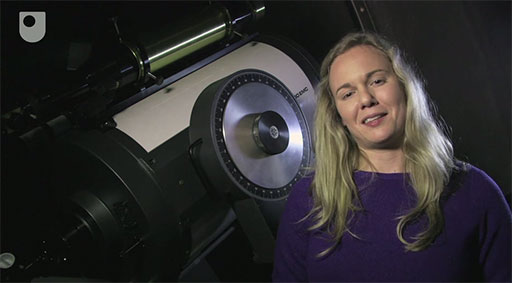Week 6: Water on the Moon
Introduction
Scientists had long debated the presence of water, but the Apollo missions appeared to settle the matter – the Moon rocks were dry. In the few cases where water was detected, it appeared to be terrestrial contamination.
Jess introduces Week 6 and the debate around water on the Moon.
And here’s a note from Jess on her research:
My research fits into the hot debate ‘dry versus wet Moon’ as I’m working on determining the water content of a specific lunar mineral: apatite. This calcium phosphate mineral is important because it can lock up water in its crystal structure. Incidentally, apatite is the most commonly occurring hydrous lunar mineral and occurs in almost every rock type we have from the Moon. Knowing how much water is contained in a range of lunar rocks permits us to assess the water budget of the lunar interior including in some cases rocks that date back to just after the Moon was formed (c. 4.5 billion years ago).
In addition to quantifying the amount of water in lunar apatite my colleagues and I are measuring the hydrogen isotopic composition of the water. This is a very powerful tool since different Solar System objects have characteristic hydrogen isotopic signatures, allowing us to infer the origin of lunar-interior water. Our current understanding suggests that there is a strong link to some examples of a class of meteorites called carbonaceous chondrites and hints to a common origin for water within the Earth and the Moon.

Transcript
By the end of this week, you will be able to:
- understand the debate around lunar water and the two kinds of Moon water
- explore examples of how science advances by continuously testing hypotheses.
